#george cecil ives
Text
British gay/bi male writers and their social circles

As a great admirer of gay literature, the social circles of gay and bisexual male writers is something that piques my interest. Due to the dangerousness of the matter in the past and also because it revolves around a relatively small niche, it seems that there was high level familiarity between these figures. The United Kingdom, a country whose literary input has abundant homoerotic tones, is a very adequate setting to analyze such a configuration.
I've been building a graph on this subject for some time, and now it seems mature enough for me to post it. It's a diagram based on friendship connections — deep or superficial —, although romantic and family-related connections are also included. Just a mutual recognition of existence isn't enough to justify a connection (otherwise most of them would be linked to Wilde!), and rivalries were not considered too. All the writers included were born during the Victorian and Edwardian eras (1837-1910), where this interconnectivity seemed particularly strong.
This is just an early version, as I imagine there is still a considerable amount of information that I missed. Therefore, I'm very open to suggestions and comments on it!
(Three Irishmen were also included in the diagram: Stoker, Wilde and Reid)
#literature#gay literature#lgbt literature#lgbtq literature#gay history#lgbt history#british literature#english literature#booklr#victorian#edwardian#henry james#edward carpenter#bram stoker#oscar wilde#a. e. housman#j. m. barrie#e. f. benson#george cecil ives#alfred douglas#somerset maugham#e. m. forster#d. h. lawrence#siegfried sassoon#rupert brooke#wilfred owen#robert graves#evelyn waugh#christopher isherwood#w. h. auden
108 notes
·
View notes
Text
rip george cecil ives and your 45 scrapbooks, you would’ve loved blogging on tumblr
8 notes
·
View notes
Text

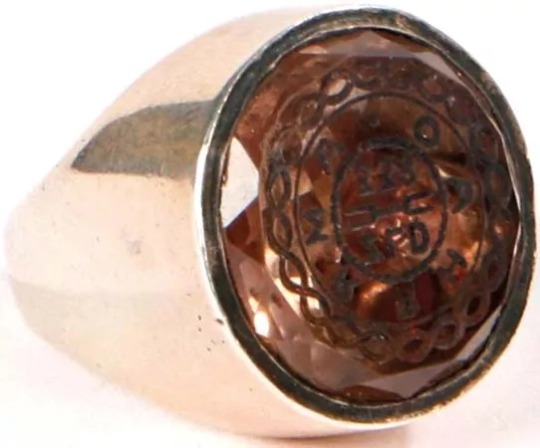
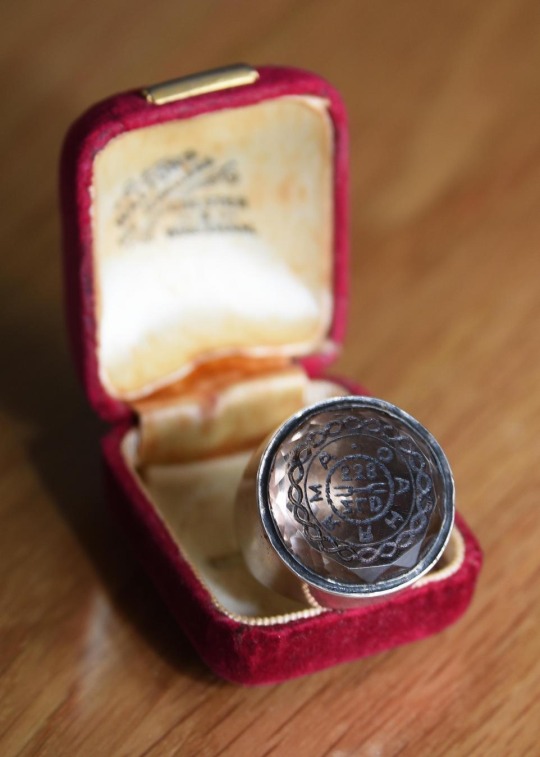




I'm so jealous. I guess it's time I learned how to carve how to carve quartz intaglios.
#George Cecil Ives#Order of Chaeronea#sacred band of thebes#gay rights#queer history#walt whitman#oscar wilde#secret society#jewlery#power ring#smoky quartz#AMRRHAO#338#ZLD
0 notes
Text
THIS DAY IN GAY HISTORY
based on: The White Crane Institute's 'Gay Wisdom', Gay Birthdays, Gay For Today, Famous GLBT, glbt-Gay Encylopedia, Today in Gay History, Wikipedia, and more … May 31


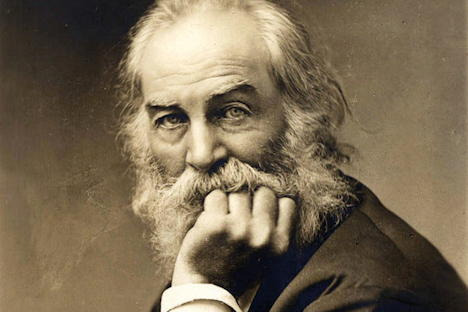
1819 – Walt Whitman (d.1892), prophetic poet of Democracy and fluency and America, of Leaves of Grass and the Calamus cluster of poems, lover of Peter Doyle and other men, was born on this date. His work is controversial, particularly his poetry collection Leaves of Grass, which has been described as obscene for its overt homoerotic sexuality.
Born on Long Island, Whitman worked as a journalist, a teacher, a government clerk, and - in addition to publishing his poetry - was a volunteer nurse during the American Civil War. Early in his career, he also produced a temperance novel, Franklin Evans (1842). Whitman's major work, Leaves of Grass, was first published in 1855 with his own money. The work was an attempt at reaching out to the common person with an American epic. He continued expanding and revising it until his death in 1892. After a stroke towards the end of his life, he moved to Camden, New Jersey, where his health further declined. He died at age 72 and his funeral became a public spectacle.
Proclaimed the "greatest of all American poets" by many foreign observers a mere four years after his death, he is also viewed as the first urban poet. He was a part of the transition between Transcendentalism and Realism, incorporating both views in his works. His works have even been translated into more than 25 languages and he was an early and profound inspiration to many of the earliest Gay theorists, including Edward Carpenter who carried on a correspondence with him and visited Whitman in his Camden, New Jersey home twice. He was also visited by Oscar Wilde and many others interested in meeting this sage poet of life.
Whitman's sexuality is often discussed alongside his poetry. Though biographers continue to debate his sexuality, he is usually described as either homosexual or bisexual in his feelings and attractions. However, there is disagreement among biographers as to whether Whitman had actual sexual experiences with men.
Whitman had intense friendships with many men and boys throughout his life. Some biographers have claimed that he may not have actually engaged in sexual relationships with males, while others cite letters, journal entries and other sources which they claim as proof of the sexual nature of some of his relationships.
Peter Doyle may be the most likely candidate for the love of Whitman's life, according to biographer David S. Reynolds. Doyle was a bus conductor whom Whitman met around 1866 and the two were inseparable for several years. Interviewed in 1895, Doyle said: "We were familiar at once — I put my hand on his knee — we understood. He did not get out at the end of the trip — in fact went all the way back with me."
A more direct second-hand account comes from Oscar Wilde. Wilde met Whitman in America in 1882 and wrote to the homosexual rights activist George Cecil Ives that there was "no doubt" about the great American poet's sexual orientation — "I have the kiss of Walt Whitman still on my lips," he boasted.
The only explicit description of Whitman's sexual activities is second hand. In 1924 Edward Carpenter, then an old man, described an erotic encounter he had had in his youth with Whitman to Gavin Arthur, who recorded it in detail in his journal. Late in his life, when Whitman was asked outright if his series of "Calamus" poems were homosexual, he chose not to respond.
Another possible lover was Bill Duckett. As a young teenage boy he lived in on the same street in Camden and moved in with Whitman, living with him a number of years and serving him in various roles. Duckett was fifteen when Whitman bought his house at 328 Mickle Street. Their relationship was close, with the youth sharing Whitman's money when he had it. Whitman described their friendship as "thick." Though some biographers describe him as a boarder, others identify him as a lover. A photograph of the two is described as "modeled on the conventions of a marriage portrait," part of a series of portraits of the poet with his young male friends, and encrypting male-male desire.
Yet another intense relationship with a young man was the one with Harry Stafford, with whose family he stayed when at Timber Creek, and whom he first met when the young man was 18, in 1876. Whitman gave young Stafford a ring, which was returned and given back over the course of a stormy relationship lasting a number of years. Of that ring Stafford wrote to Whitman, "You know when you put it on there was but one thing to part it from me, and that was death."
Walt Whitman has been claimed as the "poet of democracy", a title meant to reflect his ability to write in a singularly American character. A British friend of Walt Whitman, Mary Smith Whitall Costelloe, wrote:
"You cannot really understand America without Walt Whitman, without Leaves of Grass... He has expressed that civilization, 'up to date,' as he would say, and no student of the philosophy of history can do without him."
Modernist poet Ezra Pound called Whitman "America's poet... He is America." Andrew Carnegie called him "the great poet of America so far".
Whitman's vagabond lifestyle was adopted by the Beat movement and its leaders such as Allen Ginsberg and Jack Kerouac in the 1950s and 1960s as well as anti-war poets like Adrienne Rich and Gary Snyder. Whitman even influenced Bram Stoker, author of Dracula, and was the model for the character of Dracula! Stoker said in his notes that Dracula represented the quintessential male which, to Stoker, was Whitman, with whom he corresponded until Whitman's death.


1852 – Indiana abrogates common-law crimes, thus legalizing sodomy in the state.

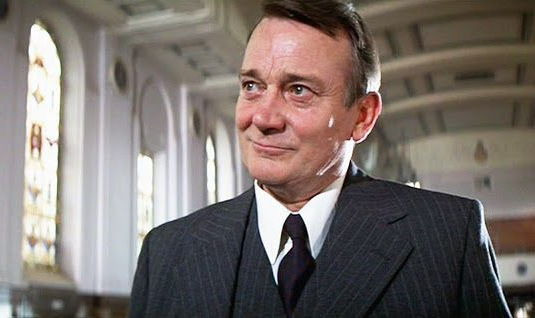
1922 – The British actor Denholm Elliott was born (d.1992). Born Denholm Mitchell Elliott in Ealing, London, England, he is best known for his roles in Trading Places and the Indiana Jones movies.
After making his film debut in Dear Mr. Prohack (1949), he went on to play a wide range of parts, often such ineffectual and occasionally seedy characters as the journalist Bayliss in Defence of the Realm, the abortionist in Alfie, and the washed-up film director in The Apprenticeship of Duddy Kravitz. In the 1980s, he won three consecutive British Academy of Film and Television Arts (BAFTA) awards—Best Supporting Actor for Trading Places as Dan Aykroyd's kindly butler, A Private Function, and Defence of the Realm — as well as an Academy Award nomination for A Room with a View. He also became familiar to a wider audience as the well meaning but addlepated Dr. Marcus Brody in Raiders of the Lost Ark and Indiana Jones and the Last Crusade (a photograph of his character appears in the fourth installment, Indiana Jones and the Kingdom of the Crystal Skull and a reference is made to Brody's death).
In 1988, Elliott was appointed a Commander of the Order of the British Empire (CBE) for his services to acting. His career included many stage performances, including with the Royal Shakespeare Company.
Privately bisexual, Elliott was married twice, the first time to the British actress Virginia McKenna for a few months in 1954 and the second time in an open marriage to actress Susan Robinson. Elliott was diagnosed with HIV in 1987 and died of AIDS-related tuberculosis at his home on Ibiza, Spain, in 1992. He was cremated. His widow Susan Robinson Elliott set up a charity, the Denholm Elliott Project, in his honour and collaborated on his biography.

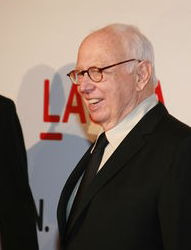
1923 – Ellsworth Kelly (d.2015) was an American painter, sculptor, and printmaker associated with Hard-edge painting, Color Field painting and the Minimalist school. Kelly often employed bright colors to enhance his works.
As a boy, he lived near the Oradell Reservoir, New Jersey, where his grandmother introduced him to bird watching at the age of eight or nine. This is where he developed his passion for form and color. He studied the works of Louis Agassiz Fuertes and John James Audubon. Audubon had a particularly strong influence on Kelly's work throughout his career. Author E.C. Goossen speculates that the two and three-color paintings for which Kelly is so well known can be traced to his bird watching, and his acquaintance with the two and three-color birds he so frequently watched. Kelly has said he was constantly alone as a young boy and became somewhat of a "loner". He was also afflicted by a slight stutter that persisted into his teenage years.
Drafted into the U.S military service in 1943 he was assigned to the 603rd Engineers Camouflage Battalion, which was normal for artists at the time to do. During World War II, he served, alongside other artists and designers, in a deception unit known as The Ghost Army. The Ghost soldiers used inflatable tanks, trucks, and other elements of subterfuge to mislead the Axis forces about the direction and disposition of Allied forces. His exposure to the visual art of camouflage can be seen as part of his basic training.
At the end of World War II, Kelly took advantage of the G.I. Bill education provisions to study from 1946 to 1947 at the School of the Museum of Fine Arts, Boston, and then at the École nationale supérieure des Beaux-Arts in Paris. He got to know John Cage, Merce Cunningham, the Surrealist artist Jean Arp and the abstract sculptor Constantin Brancusi.
Kelly decided to return to America in 1954 after being abroad for six years. His first show was at Betty Parsons' Gallery in the fall of 1957. He had three pieces, Atlantic, Bar, and Painting in Three Panels selected and shown for the Whitney Museum of American Art's show "Young America 1957." His pieces were considered radically different from the other twenty-nine artists' work. Painting in Three Panels, for example, was particularly noted and questioned for the idea of having more than one canvas used to create one piece was unheard of at this time.

Many of his paintings consist of a single (usually bright) color, with some canvases being of irregular shape, sometimes called "shaped canvases." The quality of line seen in his paintings and in the form of his shaped canvases is very subtle, and implies perfection. Kelly was exposed to and influenced by the camouflage with which his specific battalion worked while serving time in the army. This helped enlighten him on the use of form and shadow as well as the construction and deconstruction of the visible.
Ellsworth Kelly lived and worked in Spencertown, New York. From 1984 until his death, Kelly lived with his husband, photographer Jack Shear, who serves as the director of the Ellsworth Kelly Foundation. A profile in the New Yorker wrote of his life with his longtime partner Shear.


1928 – Édouard Molinaro (d.2013) was a French film director and screenwriter.
He is best known for his comedies with Louis de Funès (Oscar, etc.), My Uncle Benjamin (with Jacques Brel and Claude Jade), Dracula and Son (with Christopher Lee), and the Academy Award-nominated La Cage aux Folles (with Michel Serrault and Ugo Tognazzi).
Although he was well established in France before "La Cage Aux Folles," American audiences didn't know much of him until his madcap tale of a gay couple and their drag nightclub – La Cage Aux Folles, or, the Cage of Crazies, on the French Riviera.
When the film came to the U.S. in 1979, singer Anita Bryant had become nationally known for her condemnation of homosexuality. A year earlier, San Francisco Supervisor Harvey Milk, who was gay, had been gunned down at City Hall. "La Cage," though criticized in the gay press for its cliche drag queens, offered what was widely seen as a comic antidote to the venomous rhetoric of the day.
That was Molinaro's aim when he chose to make a movie version of French playwright Jean Poiret's stage play, which ran for five years in Paris before the movie opened in France.
"To make a comedy enabled me to tackle the question in a non-racist way – so people would laugh with, not at, homosexuals," he told the New York Times in 1981.
Molinaro was active as a director until a few years before his death, although he had almost exclusively been producing works for television.


1933 – The psychoanalyst Dr. A.A. Brill presented a paper at a joint meeting of the American Psychiatric Association and the American Psychoanalytic Association in Boston on homosexuality and paranoia. He stressed that homosexuality was part of the normal sexual instinct and plays a useful part in social relationships, and that homosexuality was only pathological when combined with adjustment difficulties. However, he also equated homosexuality with paranoia by saying homosexuals experienced delusions of persecution. (Now why would that be?)

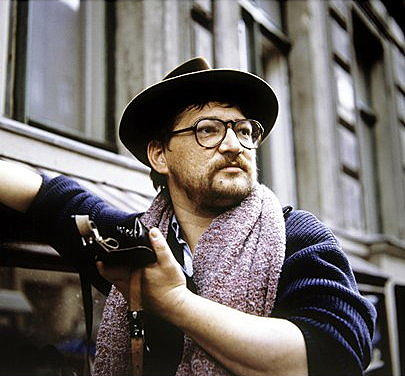
1945 – Rainer Werner Maria Fassbinder was born in Bad Worishofen, Germany (d.1982). He was a German movie director, screenwriter, and actor. He was one of the most important representatives of the New German Cinema.
He maintained a frenetic pace in film-making. In a professional career that lasted less than fifteen years, Fassbinder completed 40 feature length films; two television film series; three short films; four video productions; twenty-four stage plays and four radio plays; and 36 acting roles in his own and others' films. He also worked as an actor (film and theater), author, cameraman, composer, designer, editor, producer and theater manager.
Early in his adolescence, Fassbinder identified himself as homosexual. From 1964-1966, attended the Fridl-Leonhard Studio for actors in Munich. Around this timemade two short films,The City Tramp (Der Stadtstreicher, 1965) and The Little Chaos (Das Kleine Chaos, 1966). Shot in black and white, they were financed by Fassbinder's lover, Christoph Roser, an aspiring actor, in exchange for leading roles. Fassbinder acted in both of these films which also featured Irm Hermann.
By 1976, Fassbinder had gained international prominence, prizes at major film festivals, premieres and retrospectives in Paris, New York, Los Angeles and a study of his work by Tony Rayns was published, all helped make him a familiar name among cinephiles and campus audiences throughout the world. He lived in Munich when not traveling, rented a house in Paris (with ex-wife Ingrid Caven) and could be seen in gay bars in New York, earning him cult hero status, but also a controversial reputation in and out of his films.
Fassbinder was entangled in multiple relationships with women, but more often with men. His life, always well publicized, met with gossip and media scandal. Mixing his personal and professional lives, family, friends and lovers appeared in his films. Early in his career, he had a lasting, but fractured relationship with Irm Hermann, a former secretary whom he forced to become an actress.
Fassbinder's main romantic interest during his early period as a film director was Günther Kaufmann, a black Bavarian. Kaufmann was not a trained actor and entered cinema when, in 1969, Fassbinder fell madly in love with him. The director tried to buy his love with movie roles and expensive gifts; Kaufmann managed to destroy four Lamborghinis in a year. Like Salem, Fassbinder's next male partner, he was married and the father of two children. He appeared in fourteen of Fassbinder's films, having the leading role in Whity (1971).
In 1970 Fassbinder married Ingrid Caven, a regular actress in his films. Their wedding reception was recycled in the film he was making at that time, The American Soldier. Their relationship of mutual admiration survived the complete failure of their two-year marriage. "Ours was a love story in spite of the marriage," Ingrid explained in an interview, adding about her former husband's sexuality: "Rainer was a homosexual who also needed a woman. It's that simple and that complex." The three most important women of Fassbinder's life, Irm Hermann, Ingrid Caven and Juliane Lorenz, his last partner, were not disturbed by his homosexuality.
In 1971, Fassbinder fell in love with El Hedi ben Salem (c.1935-82), a Berber from Morocco. Their turbulent relationship ended violently in 1974. Salem, cast as Ali in Fear Eats the Soul, hanged himself in jail in 1982. Fassbinder, who barely outlived his former lover, dedicated his last film, Querelle, to Salem.
Armin Meier (1943-78), a former butcher who was almost illiterate and who had spent his early years in an orphanage, was Fassbinder's lover from 1974 to 1978. He also appeared in several Fassbinder films in this period. A glimpse into their troubled relationship can be seen in Fassbinder's episode for Germany in Autumn (1978). After Fassbinder broke up with him, Meier committed suicide on Fassbinder's birthday. He was found dead in their apartment only days later.
In the last four years of his life, Fassbinder's companion was Juliane Lorenz (b.1957), the editor of his films during this period. She can be seen in a small role as the film producer's secretary in Veronika Voss. According to Lorenz, they considered getting married, but never did so. Although they were drifting apart in his last year, they were still living together at the time of his death.
Fassbinder died at the age of 37 from heart failure resulting from a lethal interaction between sleeping pills and cocaine. His death is often considered to mark the end of the New German Cinema.

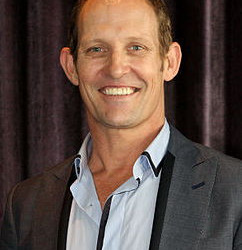
1965 – Todd McKenney is an Australian entertainer. He is best known as a judge on Australia's version of Dancing with the Stars.
McKenney grew up in Perth, where his father was a jail warden and his mother a dance teacher. They separated when he was 9. He began his entertainment career on a children's television show as Percy Penguin.
He has won many dancing titles, and has trained in jazz, tap, acrobatics and ballroom dancing. He has performed on stage since at least 1984 in such productions as 42nd Street, The Pirates of Penzance, Strictly Ballroom, La Cage aux Folles, Singin' in the Rain, and most recently Priscilla Queen of the Desert - the Musical.
He rose to fame when he took the lead role in The Boy from Oz as Peter Allen. He performed the role 766 times between 1998 and 2000, however when the production went to Broadway in 2003, Hugh Jackman landed the role over McKenney.
He is openly gay, but has a daughter (who was conceived via IVF) with his best friend Anne Wood.

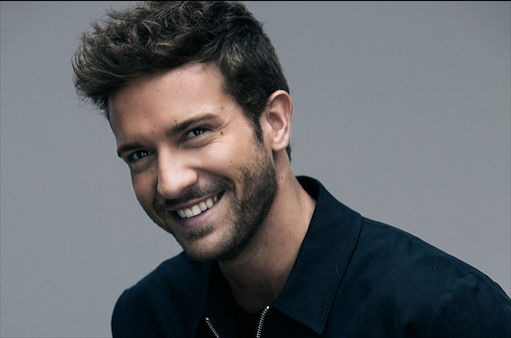
1989 –Pablo Moreno de Alborán Ferrándiz, popularly known as Pablo Alborán, born 31 May 1989 in Málaga, Spain, is a Spanish musician, singer, and songwriter.
In 2011, he was nominated for three Latin Grammy Awards. Alborán has released three studio albums, two live albums, and various musical collaborations. His records are distributed by Warner Music which debuted in 2010 with their first official release, "Solamente Tú", the first single from his debut album Pablo Alboran (2011), released in February 2011. The album ranked No. 1 in its first week of sales, making Alborán the first solo artist to sign a complete debut album to rank to the top since 1998 in Spain.
A few months after releasing his first album, it was published in acoustic as the first recorded live concert by the singer. Several weeks after it debuted to the top in Spain, it was launched in Portugal, getting to be No. 1 for several weeks. Of all his singles, two stand out in terms of popularity: "Solamente tú" and "Perdóname" which he sang together with singer Carminho, being number one in sales, both in Spain and in Portugal.
From a very young age, he was interested in learning to play various musical instruments such as piano, classical guitar, flamenco guitar, and acoustic guitar, and attended singing lessons with professional artists in Málaga and Madrid. In 2002, at the age of 12, he composed his first songs, "Amor de Barrio" (Neighbourhood Love) and "Desencuentro" (Disagreement) which would be featured 10 years later on his debut album.
In Málaga he performed for the first time with a Flamenco band in a restaurant, and he was nicknamed El Blanco Moreno (The White Moreno), because he "was very pale-skinned and Moreno was my family name", as he stated in an interview in early 2011. Later, Pablo met producer Manuel Illán and recorded a demo, which included a cover of "Deja de Volverme Loca" (Stop Driving Me Crazy) by Diana Navarro. Upon hearing this recording, Navarro expressed great interest in Alborán and became his musical mentor.
Alborán is the son of Spanish architect Salvador Moreno de Alborán Peralta.
On 17 June 2020, Alborán came out as gay. In a three-minute video posted to Instagram, the Spanish crooner came out as gay, reminding fans that he's always fought against every manifestation that prohibits or embarrasses any freedom or equality, from racism, sexism, xenophobia, homophobia and any other type of hatred.
"Today, I want my voice to be louder and for it to have more value and weight. I'm here to tell you that I am homosexual and it's okay," Alborán expressed. "Life goes on, everything will remain the same, but I'm going to be a little happier than I already am.

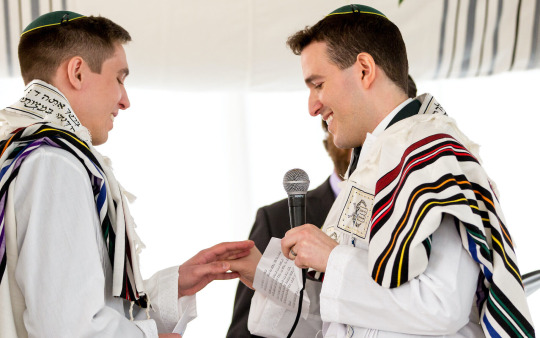
2012 – Same-sex marriage is approved unanimously by the Conservative Jewish movement, allowing U.S. rabbis to perform same-sex weddings. Two model wedding ceremonies are approved along with guidelines for same-sex divorce. Called the "Covenant of Loving Partners," the Conservative same-sex marriage document bases the ceremonies on Jewish partnership law. In the covenant, the couple pledges to be faithful and a ring ceremony binds the pair.

Today's Gay Wisdom:
Walt Whitman
[{(o)}]|[{(o)}]|[{(o)}]|[{(o)}]| [{(o)}]|[{(o)}]
Recorders ages hence,
Come, I will take you down underneath this impassive exterior,
I will tell you what to say of me,
Publish my name and hang up my picture as that of the tenderest lover,
The friend the lover's portrait, of whom his friend his lover was fondest,
Who was not proud of his songs, but of the measureless ocean of love within him, and freely pour'd it forth, Who often walk'd lonesome walks thinking of his dear friends, his lovers,
Who pensive away from one he lov'd often lay sleepless and dissatisfied at night,
Who knew too well the sick, sick dread lest the one he lov'd might secretly be indifferent to him,
Whose happiest days were far away through fields, in woods, on hills,
he and another wandering hand in hand, they twain apart from other men,
Who oft as he saunter'd the streets curv'd with his arm the shoulder of his friend,
while the arm of his friend rested upon him also.

From The Calamus cluster of poems from his Leaves of Grass:
(these were first published 151 years ago this year!)
1
Whoever you are holding me now in hand,
Without one thing all will be useless,
I give you fair warning, before you attempt me further,
I am not what you supposed, but far different.
2.
Who is he that would become my follower?
Who would sign himself a candidate for my affections? Are you he?
3.
The way is suspicious -- the result slow, uncertain, may-be destructive;
You would have to give up all else -- I alone would expect to be your God, sole and exclusive,
Your novitiate would even then be long and exhausting,
The whole past theory of your life, and all conformity to the lives around you, would have to be abandoned;
Therefore release me now, before troubling yourself any further -- Let go your hand from my shoulders,
Put me down, and depart on your way.
4.
Or else, only by stealth, in some wood, for trial,
Or back of a rock, in open air,
(for in any roofed room of a house I emerge not -- nor in company,
And in the libraries I lie as one dumb, a gawk, or unborn, or dead,)
But just possibly with you on a high hill -- first watching lest any person, for miles around, approach unawares,
Or possibly with you sailing at sea, or on the beach of the sea, or some quiet island,
Here to put your lips upon mine I permit you,
With the comrade's long-dwelling kiss, or the new husband's kiss,
For I am the new husband, and I am the comrade.

Another excerpt from Walt Whitman's Leaves of Grass.
19 . I Sing the Body Electric
1
I SING the Body electric;
The armies of those I love engirth me, and I engirth them;
They will not let me off till I go with them, respond to them,
And discorrupt them, and charge them full with the charge of the Soul.
Was it doubted that those who corrupt their own bodies conceal themselves;
And if those who defile the living are as bad as they who defile the dead?
And if the body does not do as much as the Soul?
And if the body were not the Soul, what is the Soul?
2
The love of the Body of man or woman balks account—the body itself balks account;
That of the male is perfect, and that of the female is perfect.
The expression of the face balks account;
But the expression of a well-made man appears not only in his face;
It is in his limbs and joints also, it is curiously in the joints of his hips and wrists;
It is in his walk, the carriage of his neck, the flex of his waist and knees—dress does not hide him;
The strong, sweet, supple quality he has, strikes through the cotton and flannel;
To see him pass conveys as much as the best poem, perhaps more;
You linger to see his back, and the back of his neck and shoulder-side.
The sprawl and fulness of babes, the bosoms and heads of women, the folds of their dress, their style as we pass in the street, the contour of their shape downwards,
The swimmer naked in the swimming-bath, seen as he swims through the transparent green-shine, or lies with his face up, and rolls silently to and fro in the heave of the water,
The bending forward and backward of rowers in row-boats—the horseman in his saddle,
Girls, mothers, house-keepers, in all their performance,
The group of laborers seated at noon-time with their open dinner-kettles, and their wives waiting,
The female soothing a child—the farmer's daughter in the garden or cow-yard,
The young fellow hoeing corn—the sleigh-driver guiding his six horses through the crowd,
The wrestle of wrestlers, two apprentice-boys, quite grown, lusty, good-natured, native-born, out on the vacant lot at sundown, after work,
The coats and caps thrown down, the embrace of love and resistance,
The upper-hold and the under-hold, the hair rumpled over and blinding the eyes;
The march of firemen in their own costumes, the play of masculine muscle through clean-setting trowsers and waist-straps,
The slow return from the fire, the pause when the bell strikes suddenly again, and the listening on the alert,
The natural, perfect, varied attitudes—the bent head, the curv'd neck, and the counting;
Such-like I love—I loosen myself, pass freely, am at the mother's breast with the little child, Swim with the swimmers, wrestle with wrestlers, march in line with the firemen, and pause, listen, and count.
3
I know a man, a common farmer—the father of five sons;
And in them were the fathers of sons—and in them were the fathers of sons.
This man was of wonderful vigor, calmness, beauty of person;
The shape of his head, the pale yellow and white of his hair and beard, and the immeasurable meaning of his black eyes—the richness and breadth of his manners,
These I used to go and visit him to see—he was wise also;
He was six feet tall, he was over eighty years old—his sons were massive, clean, bearded, tan-faced, handsome;
They and his daughters loved him—all who saw him loved him;
They did not love him by allowance—they loved him with personal love;
He drank water only—the blood show'd like scarlet through the clear-brown skin of his face;
He was a frequent gunner and fisher—he sail'd his boat himself—he had a fine one presented to him by a ship-joiner—he had fowling-pieces, presented to him by men that loved him;
When he went with his five sons and many grand-sons to hunt or fish, you would pick him out as the most beautiful and vigorous of the gang.
You would wish long and long to be with him—you would wish to sit by him in the boat, that you and he might touch each other.


17 notes
·
View notes
Text
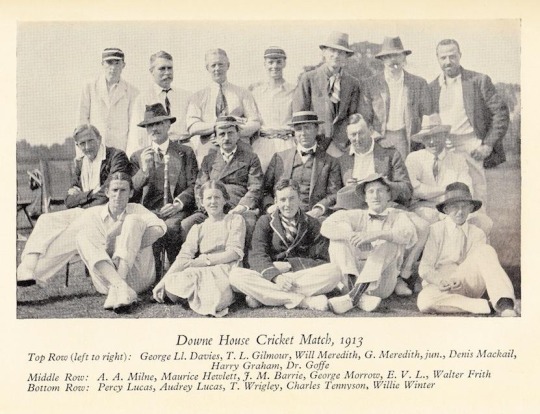
The Allahakbarries was an amateur cricket team founded by author J. M. Barrie, and was active from 1890 to 1913. The team's name was a portmanteau of Barrie's name and the mistaken belief that 'Allah akbar' meant 'Heaven help us' in Arabic (rather than its true meaning: 'God is great'). Notable figures to have featured for the side included Rudyard Kipling, H. G. Wells, Arthur Conan Doyle, A. A. Milne, E. W. Hornung, Henry Justice Ford, A. E. W. Mason, Walter Raleigh, E. V. Lucas, Maurice Hewlett, Owen Seaman, George Cecil Ives, and George Llewelyn Davies, as well as the son of Alfred Tennyson.
Barrie's enthusiasm for the game eclipsed his talent for it; asked to describe his bowling, he replied that after delivering the ball he would go and sit on the turf at mid-off and wait for it to reach the other end which "it sometimes did". The team played for the love of the game, rather than the results it achieved, and Barrie was generous in his praise for his teammates and opposition alike. He praised one teammate's performance by observing that "You scored a good single in the first innings but were not so successful in the second" while he lauded the opposition's effort by pointing out how "You ran up a fine total of 14, and very nearly won". He instructed Bernard Partridge, an illustrator from Punch magazine who was afflicted with a lazy eye, to "Keep your eye on square leg" while bowling, and told square leg, "when Partridge is bowling, keep your eye on him." He forbade his team to practise on an opponent's ground before a match because "this can only give them confidence".
— Wikipedia
#lmaooo#like hello??? gang’s all here???#it’s the literary avengers (of cricket)#j.m. barrie#a.a. milne#sir arthur conan doyle#h.g. wells
21 notes
·
View notes
Text
Walt Whitman
Continuing my series of learning about things referenced in the book, I'm looking at things Alex references when he talks about engaging with queer history. These are all tagged #a series of learning about things that are referenced in the book, if you want to block the tag.

Walt Whitman, born May 1819, is one of America's influential poets. He is best known for Leaves of Grass, a poetry collection initially published in 1855 but continually amended until his death in 1892. It grew from 12 poems to over 400.
He has been described as a queer pioneer, and his work spoke to and inspired many queer men of the same time, including Oscar Wilde and Bram Stoker. His poems often referenced queer love, although did so in ways that allowed him to deny it, and that signalled as queer to those of his own community. "The affection he felt toward these soldiers, his descriptions, seem to speak to a gay readership," Gooch said. "He wrote about 'comrades' a lot. He seemed to be writing in a sort of code."
Whitman's sexuality is, as is common with historical figures, debated. The theories range from Whitman being bisexual, to his relationships with men being deeply loving but platonic. Whitman did appear to have relationships with women, having a romantic friendship with Ellen Grey - an actress - in 1862, and he later referred to her as "an old sweetheart of mine." [Callow]
However, his relationships and encounters with men are also prevalent. Oscar Wilde was quoted as having told George Cecil Ives (a homosexual-rights activist) "I have the kiss of Walt Whitman still on my lips." [Stokes] Peter Doyle, a bus conductor, met Whitman in the mid 1860s, and they were inseparable for several years. When Doyle was interviewed in 1895, he said of Whitman: "We were familiar at once—I put my hand on his knee—we understood. He did not get out at the end of the trip—in fact went all the way back with me." [Kaplan] Another relationship Whitman had was with Harry Stafford, which lasted over several years. When writing to Whitman about the ring he had given Stafford, Stafford wrote "You know when you put it on there was but one thing to part it from me, and that was death." [Folsom]
-----
A very brief example of some of Whitman's poetry that has been read as queer:
Song of Myself (1892 version)
13
His blue shirt exposes his ample neck and breast and loosens over his hip-band,
His glance is calm and commanding, he tosses the slouch of his hat away from his forehead,
The sun falls on his crispy hair and mustache, falls on the black of his polish’d and perfect limbs.
I behold the picturesque giant and love him, and I do not stop there,
I go with the team also.
15
The machinist rolls up his sleeves, the policeman travels his beat, the gate-keeper marks who pass,
The young fellow drives the express-wagon, (I love him, though I do not know him;)
"Live Oak, with Moss"
VIII
Hours of my torment—I wonder if other men
ever have the like out of the like
feelings?
Is there even one other like me—distracted
— his friend, his lover, lost to him?
XI
For an athlete loves me, and I him-But
toward him there is something fierce
and terrible in me,
I dare not tell it in words—not even in these
songs.
See also;
We Two Boys Together Clinging
A Glimpse
Sources:
Callow, Philip. From Noon to Starry Night: A Life of Walt Whitman
Folsom, Ed (April 1, 1986). "An Unknown Photograph of Whitman and Harry Stafford". Walt Whitman Quarterly Review. 3 (4): 51–52.
Kaplan, Justin (2003). Walt Whitman: A Life.
Stokes, John, Oscar Wilde: Myths, Miracles and Imitations 1996
Wikipedia: Leaves of Grass
Wikipedia: Walt Whitman
Additional Reading:
Schmidgall, G. (1997). Walt Whitman: A Gay Life. Dutton.
Walt Whitman’s “Song of Myself”: Just the Gay Parts
Making Queer History: Walt Whitman - note the warning for anti-Black racism & nationalism
Loving, Jerome. Walt Whitman: The Song of Himself. 1999
#red white and royal blue#rwrb#meta#long post#a series of learning about things that are referenced in the book#elio's#elio's meta
16 notes
·
View notes
Text
Queer books, day 11/30
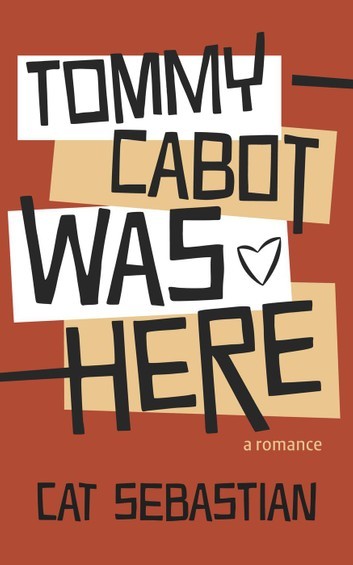
I wasn't sure if I was going to talk about these separately, but here we are. The series is three books (I talked about book 2 already), and this is book one. It's a novella, a short second-chance love story between a rejected Kennedy and his math teacher childhood best friend.
It's set in 1959 in Massachusetts, and Sebastian does some pretty interesting stuff with that setting that I think is worth looking at. Of course, the characters experience what she typifies as "period-typical homophobia," which comes down to Tommy having been kicked out of his family when he came out of the closet and Everett wondering if he'll have to get a different job if his relationship with Tommy becomes common knowledge. Tommy's ex-wife, Patricia, is in a relationship with a person named Harry (short for Harriet, although they're very masc-presenting) and is rather unconcerned about how it's perceived, in part because she's rich. But there's also a moment when Tommy's nephew (Peter; now you see how this hooks into the next one) comes to visit (and come out to his uncle) and mentions his gay friend has said that gay people should stick together. Meaning that this book is trying to depict the beginnings of a queer consciousness that...(gestures broadly) is still ongoing.
That's not to say that historically, 1959 is the first time any of that happened. Remember when I mentioned Lawrence Housman and the Order of Chaeronea (which was founded by George Cecil Ives in 1897; I don't know if I implied that Housman founded it, a mistake on my part if so, he just joined). And there were a few other groups before that. But given that in the next ten years we get the Cooper Do-Nuts Riot in 1959 or 1960, the Compton Cafeteria Riot in 1966 and then Stonewall in 1969, this does feel like a pivotal moment for gay rights. A moment at which things that had been bubbling under the surface finally started coalescing. Much as Tommy Cabot's long-denied sexual identity starts bubbling to the surface after years of repression. SEE WHAT I DID THERE?
Anyway. The book contains this quote, which I keep coming back to:
Nobody had told [Tommy] how much of his late thirties would involve lying on floors and crying.
Tommy and Everett are one of my favorite couples in Sebastian's work, and although we see them again in book 3, we don't ever really get to spend more time with them, which is a pity. So many romance novels are about bright young things, and as a not-bright-young-thing myself, it's nice to see people d'un certain age portrayed.
There's sex in this one, but it's not super graphic. This is very much about love and rediscovery and connection. 10/10, go read it.
7 notes
·
View notes
Link
1 note
·
View note
Photo

George Cecil Ives (deceased)
Gender: Male
Sexuality: Gay
DOB: 1 October 1867
RIP: 4 June 1950
Ethnicity: English, Spanish
Occupation: Prof cricket player, poet, writer, prison reformer, LGBT activist
#George Cecil Ives#lgbt history#gay history#lgbt#lgbtq#male#gay#1867#rip#historical#white#athlete#cricket#poet#writer#activist
59 notes
·
View notes
Text
That you will never vex or persecute lovers.
That all real love shall be to you as sanctuary.
That all heart-love, legal and illegal, wise and unwise, happy and disastrous, shall yet be consecrate for that love's Holy Presence dwelt there.
Dost thou so promise?
- The Vow That Shall Make You One of Our Number
2 notes
·
View notes
Photo

George Cecil Ives - 1 October, 1867 - 4 June, 1950:
George Cecil Ives was a German-English writer, poet, penal reformer and a homosexual law campaigner. Raised by grandmother Emily Ives, Ives lived between Bentworth in the United Kingdom and the South of France where he was home educated and later enrolled at Magdalene College, Cambridge. This sparked the beginning of Ives’ work as he began compiling volumes of diaries and scrapbooks - containing clippings from a diverse range of topics - spanning from his interests such as cricket to wider areas such as theories on crime and punishment, psychology of gender, transvestism and homosexuality.
Ives met Oscar Wilde at the Authors Club in London in 1892. Ives had accepted his sexuality and now focused upon advancing what he identified as ‘The Cause’ which worked to combat against the oppression of homosexuals. Though Wilde didn’t share the same passion for ‘The Cause’ that Ives did, that didn’t hinder him and in 1897, he organised the first formal homosexual rights group, The Order of Chaeronea, a secret society named after the battle where male lovers of the Theban Band were killed in 38BC. Ives understood that ‘The Cause’ would not be accepted by wider society, so the society ran under a system of codes, passwords and ceremonies and eventually members were enlisted from all the over the globe - helping to promote gay rights worldwide.
Sex psychology also was one of Ives’ core interests and through his connections within the field, he began the British Society for the Study of Sex Psychology in 1914. The society addressed multiple areas and progressive ideas such as a more rational attitude towards sexual conduct, birth control and abortion as well as prostitution. In an era that often sought to conserve, Ives’ work was forward-thinking and was one of the first instances of homosexual rights campaigning in Britain and, although less known, George Cecil Ives should be highlighted as an influential figure within queer history.
41 notes
·
View notes
Text
George Cecil Ives, and early gay rights campaigner, met Oscar Wilde once and asked him to join the Cause™ but Oscar said no and George was sad. He was also involved with Bosie Douglas at one point and he was one of the founders of the Order of Chaeronea, an underground group of LGBTQ+ people.
#i love george cecil ives#i'm gonna do a presentation on him#when i'm done with my oscar wilde presentation#george cecil ives#queer history#oscar wilde#lord alfred douglas
21 notes
·
View notes
Text
EW Hornung was like “Arthur J. Raffles, you are based off the two gayest men I know.”
123 notes
·
View notes
Text
THIS DAY IN GAY HISTORY
based on: The White Crane Institute's 'Gay Wisdom', Gay Birthdays, Gay For Today, Famous GLBT, glbt-Gay Encylopedia, Today in Gay History, Wikipedia, and more …

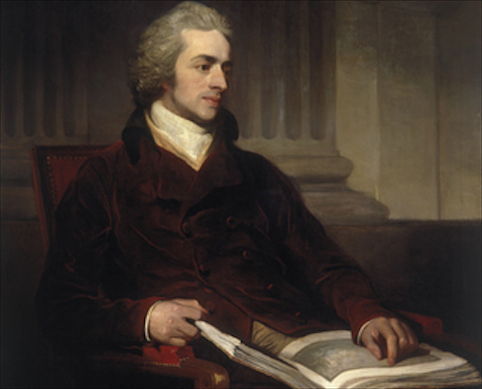
1760 – Extremely wealthy British author and connoisseur William Beckford (d.1844) was ostracized by English society for the last sixty years of his life because of his homosexuality.
Beckford's father was alderman and lord mayor of London, and his mother, connected by marriage to the Dukes of Hamilton, a stern and unrelenting Calvinist. Beckford's father died when he was ten, and his mother decided that it would be best not to risk sending her delicate son away to school. She hired a series of tutors and monitored his education herself. Beckford early on displayed an interest in art and music, and especially in the exotic Oriental arts of the Arab world.
As he entered adolescence, he was lucky that one of his series of tutors was Alexander Cozens, whose own fascination with Eastern lore encouraged Beckford's own. At the same time that Beckford's aesthetic taste began to develop, so did his devotion to emotional self-indulgence.
Chief among his emotional attachments was a young cousin, William Courtenay, known as "Kitty" to family and friends, who responded to Beckford's attentions with adolescent devotion. For years, Beckford poured out his soul in a series of epistolary endearments to Courtenay that were as extreme as they were indiscreet. These letters, almost inevitably, fell into the hands of Courtenay's reactionary and powerful uncle Lord Loughborough, a chief justice.
Although, Loughborough could not catch Beckford and Courtenay in flagrante dilecto, he let out a rumor that he had, and he advertised the scandal in the morning newspapers from October through December 1784. The result of this newspaper campaign was the utter ruin of Beckford's reputation.
He lived as an exile in his own estate at Fonthill, and he traveled freely on the continent. But he was never again received in polite society.
He lived until 1844, for sixty years an outcast. In his travels, he met various men who befriended him and boys whom he loved. Some stayed close to him throughout his life, and a few earned his sincere devotion. But society meant too much to him not for him to feel the blow of his disgrace, and the frantic building that went on at his estate, which began with a wall around the entire property and ended with his massive gothic Fonthill Abbey with its huge central tower, might be understood as his attempt to deal with his status as an outcast.

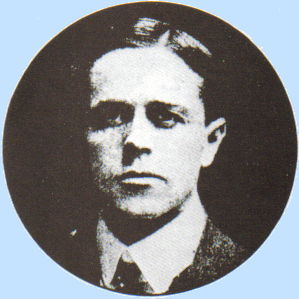
1867 – George (Cecil) Ives (d.1950) was a German-English poet, writer, penal reformer and early gay rights campaigner.
Ives was the illegitimate son of an English army officer and a Spanish baroness. He was raised by his paternal grandmother in Hampshire and the South of France. Ives was educated at home and at Magdalene College, Cambridge, where he started to amass 45 volumes of scrapbooks (between 1892 and 1949). These scrapbooks consist of clippings on topics such as murders, punishments, freaks, theories of crime and punishment, transvestism, psychology of gender, homosexuality, cricket scores, and letters he wrote to newspapers.
Ives met "Oscar Wilde at the Authors' Club in London in 1892. Oscar Wilde was taken by his boyish looks and persuaded him to shave off his moustache, and once kissed him passionately in the Travellers' Club. Ives was already working for the end of the oppression of homosexuals, what he called the "Cause." He hoped that Wilde would join the "Cause", but was disappointed. In 1893, Lord Alfred Douglas, with whom he had a brief affair, introduced Ives to several Oxford poets whom Ives also tried to recruit.
By 1897, Ives created and founded the Order of Chaeronea, a secret society for homosexuals which was named after the location of the battle where the Sacred Band of Thebes was finally annihilated in 338 BC. Members included Charles Kains Jackson, Samuel Elsworth Cottam, Montague Summers, and John Gambril Nicholson.
The same year, Ives visited Edward Carpenter at Millthorpe. This marked the beginning of their friendship.
In 1914, Ives, together with Edward Carpenter, Magnus Hirschfeld, Laurence Housman and others, founded the British Society for the Study of Sex Psychology. He also kept in touch with other progressive psychologists such as Havelock Ellis and Professor Cesare Lombroso.
The topics addressed by the Society in lectures and publications included: the promotion of the scientific study of sex and a more rational attitude towards sexual conduct; problems and questions connected with sexual psychology (from medical, juridical, and sociological aspects), birth control, abortion, sterilisation, venereal diseases, and all aspects of prostitution. In 1931, the organisation became the British Sexological Society.
As he grew older Ives developed odd passions. When the Second World War ended he refused to believe it and carried a gas mask with him until his death. He was also afraid to sleep alone and would always contrive to have at least one bed fellow.
Throughout his life, Ives had many lovers whom he called his "children". He took care of them, gave them money and bought them houses. He often lived with more than one lover at a time and some stayed with him several years.
At his death in 1950, George Ives left a large archive covering his life and work between 1874 and 1949. The papers were bought in 1977 by the Harry Ransom Research Center at the University of Texas at Austin.
The bulk of the material consists of 122 volumes of diaries kept by Ives from the age of nineteen until about six months before his death at age eighty-two. Most of the diaries have daily entries. The view Ives provides in his diary of the life of an upper-middle class English homosexual from the end of the nineteenth century to the mid-twentieth century is of particular interest for understanding the homosexual movement in England during this time.
He was the model for Raffles, the fictional Victorian gentleman thief, according to Andrew Lycett, who says that the creator of Raffles, William Hornung, "may not have understood this sexual side of Ives' character", but that Raffles "enjoys a remarkably intimate relationship with his sidekick Bunny Manders."

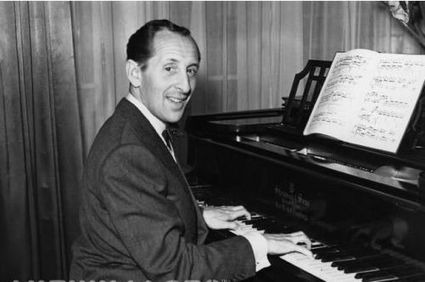
1903 – Vladimir Horowitz (d.1989) was a Russian-born American classical pianist and composer. His technique and use of tone color and the excitement of his playing were legendary. He is widely considered one of the greatest pianists of the 20th century.
Born in Kiev, now capital of the Ukraine, Horowitz received piano instruction from an early age, initially from his mother, who was herself a pianist. In 1912 he entered the Kiev Conservatory. His first solo recital was in Kharkiv in 1920.
Horowitz's fame grew, and he soon began to tour Russia where he was often paid with bread, butter and chocolate rather than money, due to the country's economic hardships caused by the Civil War. During the 1922-1923 season, he performed 23 concerts of eleven different programs in Petrograd alone. Despite his early success as a pianist, Horowitz maintained that he wanted to be a composer, and undertook a career as a pianist only to help his family, who had lost their possessions in the Russian Revolution.
In December 1925, Horowitz crossed the border into the West, ostensibly to study with Artur Schnabel. Privately intending not to return, the pianist had stuffed American dollars and British pound notes into his shoes to finance his initial concerts.
On December 18, 1925, Horowitz made his first appearance outside his home country, in Berlin.He later played in Paris, London and New York City. Horowitz gave his United States debut on January 12, 1928, in Carnegie Hall. He played Tchaikovsky's Piano Concerto No. 1 under the direction of Sir Thomas Beecham, who was also making his U.S. debut. Horowitz's success with the audience was phenomenal, and his place in American music was assured.
Despite his marriage, in 1933, to Arturo Toscanini's daughter, there were persistent rumors of Horowitz's homosexuality. Arthur Rubinstein said of Horowitz that "Everyone knew and accepted him as a homosexual." David Dubal wrote that in his years with Horowitz, there was no evidence that the octogenarian was sexually active, but that "there was no doubt he was powerfully attracted to the male body and was most likely often sexually frustrated throughout his life." Dubal observed that Horowitz sublimated a strong instinctual sexuality into a powerful erotic undercurrent which was communicated in his piano playing. Horowitz, who denied being homosexual, once joked "There are three kinds of pianists: Jewish pianists, homosexual pianists, and bad pianists."
In the 1940s, Horowitz began seeing a psychiatrist. According to sources, this was an attempt to alter his sexual orientation.
Vladimir Horowitz died on November 5, 1989 in New York of a heart attack, aged 86. He was buried in the Toscanini family tomb in the Cimitero Monumentale, Milan, Italy.


Wowereit (R) with Kubicki
1953 – Klaus Wowereit is a German politician, member of the SPD (Social Democratic Party), and was the Mayor of Berlin from the 21 October 2001 state elections, where his party won a plurality of the votes, 29.7%, until December 2014. He served as President of the Bundesrat (the fourth highest office in Germany) in 2001/02. His SPD-led coalition was re-elected in the 2006 elections; after the 2011 elections the SDPs coalition party switched sides. He was also sometimes mentioned as a possible SPD candidate for the Chancellorship of Germany (Kanzlerkandidatur) in the next German federal election, but that never materialized.
Wowereit is one of the most famous German politicians who is openly gay. In coming out, prior to the 2001 mayoral elections, he coined the now famous German phrase "Ich bin schwul, und das ist auch gut so." ("I'm gay, and that is a good thing.") In his autobiography, Wowereit states that his decision to come out in public was made because after his nomination as candidate to become the Mayor of Berlin, he felt that the German tabloids were already "on the right track". With his coming out, Wowereit wanted to beat the tabloids to it and prevent them from writing wild, sensational and fabricated stories about his private life. Wowereit said those now famous words during a convention of the Berlin SPD. After the end of his speech, there was half a second of surprised silence, then spontaneous cheering and loud applause to support him.His election as mayor made Berlin one of three major European cities with an openly gay mayor, along with Paris, whose mayor is Bertrand Delanoë, and Hamburg, whose mayor was Ole von Beust at that time, who both also took office in 2001. However, von Beust resigned in 2010, making Wowereit the only gay mayor of a major German city. Previously, the largest city with a gay mayor had been Winnipeg, Manitoba, Canada, with mayor Glen Murray.
In September 2007, Wowereit published an autobiographical book titled "…und das ist auch gut so.", after his famous coming-out phrase
Wowereit's civil partner, Jörn Kubicki, is a neurosurgeon. They have been in a relationship since 1993.


1991 – Gus Kenworthy is a British-born American freestyle skier from Telluride, Colorado who competes in slopestyle and also the halfpipe. Kenworthy won the silver medal in Men's freestyle skiing at the 2014 Winter Olympics in Sochi, Russia.
Kenworthy is the youngest of three sons of an English mother and an American father, Pip and Peter Kenworthy. He has two older brothers, Hugh and Nick Kenworthy.
Kenworthy's father, Peter, has been the executive director of the Mountainfilm film festival in Telluride, since 2006. He is a former banker from Philadelphia, who worked in London (UK) for several years. Kenworthy's mother, Pip, is English and originally from Bristol, England. She was born into a large family, with eight siblings. After moving to London in the early 1970s, she began working backstage in costumes, at the Kings Head Theatre Club. She also ran a vintage booth at the Camden Lock Market. She emigrated with her then husband, Peter, and her sons, including then two-year-old Gus, to Telluride, in 1993.
Kenworthy graduated from Telluride High School in June 2010. He could have graduated in 2009, but decided instead to take a year off to ski.
Kenworthy won AFP World Championships overall titles in 2011, 2012, and 2013. In 2013, he placed second at the Olympics in Sochi, Russia and won his first medal, a bronze, at the X Games in Tignes, France in the slopestyle event.
On February 13, 2014, Kenworthy won the silver medal during Winter Olympics in Sochi.
Kenworthy gained international media attention as a result of his photographer friend, Robin Macdonald, texting him a photo of five stray dogs: four puppies and their mother; during their stay in Sochi, at the 2014 Winter Olympics. He stayed behind for more than a month to save the family of dogs, and others; while he fought to bring them back home. Their adoption of these dogs helped bring further attention to the problematic rise of the stray dog population in Sochi, which grew significantly during the Olympics.
In October 2015, Kenworthy came out as gay. Rolling Stone noted the "freestyle medalist is the first action-sports star to come out." After a long term relationship with Canadian photographer Robin Macdonald, he is was dating Matthew Wilkas. The two gained some attention when they shared their Times Square kiss on New Year's Eve 2015. Although the two are no longer together, they are still good friends.


1956 – The U.S. Second Circuit Court of Appeals upholds the deportation of a Gay alien for exposing himself in a restroom. The concurring opinion of Judge Jerome Frank limits his support for the deportation to the alien's lying about a previous conviction. Frank embarks on a remarkable opinion raising questions about why homosexuality seems to bother people so much.

1936 – Francisco Franco is proclaimed Generalissimo and Head of State in Spain. His dictatorship lasts 40 years during which thousands of homosexuals are jailed, put in camps, or locked up in mental institutions for breaking the Vagrancy Act.

1783 – The last execution for sodomy in France occurs—a friar is broken on the wheel.


11 notes
·
View notes
Quote
With whom, then, should I sleep? perhaps with thee,
And gaze into those eyes, those deep sad eyes,
Feeling the drowsy touch of thy vast wings.
Thy brother Sleep I know, with him have lain
Many a night, forgetting all the day
And every pain in that sweet comradeship.
Ah, he is younger, gay, capricious oft,
Dwelling with some for hours, or else away,
As with my friend, for lonely days and nights.
But thou, angel of night, youth of the silent glance,
All sleep with thee, but yet how diversely,
And but the very few hail thee with gladness.
Say would there be a telling of our tryst,
A wild Greek meeting with my spirit free,
Or would it be but rest, a heavy sleeping?
I fancy I could echo sighs with thee,
Picturing all the sights that thou hast seen,
And flying in my thought where thou hast flown.
George Cecil Ives, “With Whom, Then, Should I Sleep?” (1896)
14 notes
·
View notes
Text








When a fan art involving the Dissidia/Persona 3 crossover containing plenty of VA jokes inspired you to make these very random teams.
#akira ishida#hikaru midorikawa#maaya sakamoto#yuri lowenthal#liam o'brien#grant george#relationship voice actor#voice actor joke#final fantasy#final fantasy i#final fantasy ii#final fantasy iv#final fantasy ix#final fantasy xiii#dissidia final fantasy#dissidia final fantasy nt#dissidia final fantasy nt free edition#warrior of light#firion#cecil harvey#kain highwind#kuja#lightning#claire farron
24 notes
·
View notes